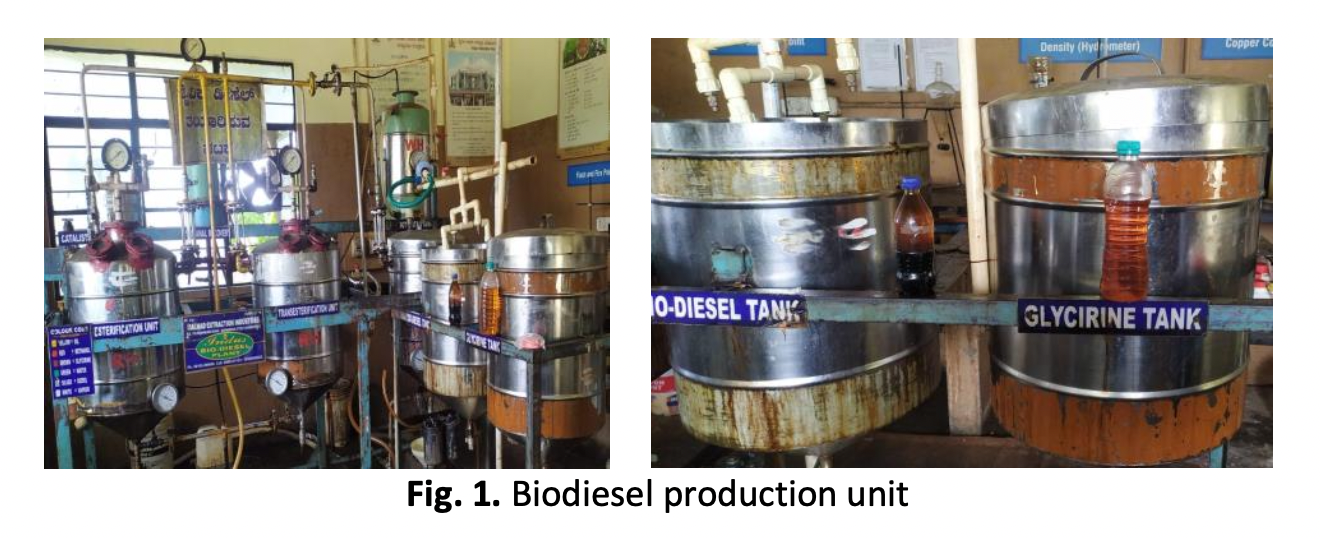Waste Cooking Oil Biodiesel and their Nanobiodiesel Blends Infused with Reduced Graphene Oxide (RGO) Nanoparticles for Diesel Engine Applications
DOI:
https://doi.org/10.37934/arfmts.114.2.1531Keywords:
Waste cooking oil biodiesel, reduced graphene oxide, zeta potentialAbstract
This work focusses on the potential application of waste cooking oil (WCO) as alternative to diesel as it is abundantly, locally available. The oil is subsequently converted into its biodiesel called waste cooking biodiesel (WCOBD). GCMS studies of the waste cooking oil and its biodiesel is carried out to determine the fatty acid composition. Further WCOBD is blended with diesel to produce its WCOBD B20 blend. The physio-chemical properties of the WCO, WCOBD, WCOBD B20 and their nano-biodiesel blends were determined and were compared with diesel. These properties of WCOBD B20 are in good agreement with diesel. This B20 blend can successfully provide 20% substitute to fossil diesel and save foreign exchange besides providing energy security to India. The fuel properties of the WCOBD B20 blends are further modified by adding carbon derived nanoparticles of reduced graphene oxide (RGO) to prepare nano-biodiesel blends. The percentage of RGO nanoparticles were varied from 20% to 100 % by volume insteps of 20% using suitable SDS surfactants. The stability of these nano-biodiesel blends is determined by using zeta potential method. The stability of decreased with increase in the nano-particle dosage in base biodiesel blends. Accordingly, the blends with dosage beyond 80% showed lower stability in terms of lower zeta potential values. The nano-biodiesel blends showed improvement in calorific value and self-ignition temperature compared to the B20 biodiesel blend. Among the Nano-biodiesel blends considered WCOME B20 RGO80 showed comparatively higher BTE (11.67%), reduced emissions of smoke opacity (14.63%), HC (21.42%), CO (16.67%), ID (10%), CD (16.67%) and increased NOx (2.5%), and PP (15.38%) respectively when compared to the WCOBD B20 blend.
Downloads

































